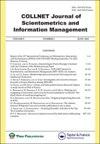Human and algorithmic decision-making in the personnel selection process: A comparative bibliometric on bias
IF 0.8
Q2 INFORMATION SCIENCE & LIBRARY SCIENCE
COLLNET Journal of Scientometrics and Information Management
Pub Date : 2023-01-01
DOI:10.47974/cjsim-2022-0063
引用次数: 0
Abstract
This article examines, with bibliometrics, the publication on bias in organizations’ personnel selection processes, whether they use automated decision-making systems or human-made decisions. While human bias is dynamic, restricted, mutate, and easier to determine the source; algorithmic bias is large-scale, static, and unpredictable. Despite the apparent discrepancy, there is a symbiotic relationship between those two, but somehow only one of them is getting any attention regarding the consequences of fairness on personnel selection and how this influences organizational diversity. So, looking for a better understanding of organizational behaviour, we conduct a bibliometric review to mappings the relations of these two. Here we reviewed 55 articles from the Web of Science Core Collection, from the earliest research published in 1979 to 2021. Only papers of the document type “article” was considered. The tool used for bibliometric data analysis were bibliometrix packages from the RStudio system version 3.6.3. According to our review, the number of studies on the subject is still tiny, and most of them were conducted under controlled conditions without considering the error agent of an organizational environment such as time, organizational culture, and the emotions of the recruiter; this makes it impossible to develop practices to avoid discrimination in these spaces. Concerning the theme, studies on human bias are the most common, with a focus on gender bias, and have recently adopted diversity. Hardly studies on algorithm decision-making consider the process’s fairness as a topic for investigation. However, neither study demonstrates a correlation or systematic approach between them. More interdisciplinary and empirical research should be the focus of future studies.人事选择过程中的人与算法决策:关于偏差的比较文献计量学
本文通过文献计量学研究了组织人员选择过程中的偏见,无论他们是使用自动决策系统还是人为决策。虽然人类的偏见是动态的、受限制的、变异的,而且更容易确定来源;算法偏差是大规模的、静态的、不可预测的。尽管存在明显的差异,但这两者之间存在共生关系,但不知何故,只有其中一个在人员选择的公平性后果以及这如何影响组织多样性方面得到了关注。因此,为了更好地理解组织行为,我们进行了文献计量审查,以映射这两者的关系。在这里,我们回顾了来自Web of Science核心合集的55篇文章,从1979年最早发表的研究到2021年。只审议文件类型为“文章”的文件。用于文献计量数据分析的工具是来自RStudio系统版本3.6.3的bibliometrix包。根据我们的回顾,关于这一主题的研究数量仍然很少,而且大多数研究都是在受控条件下进行的,没有考虑组织环境的误差因素,如时间、组织文化和招聘人员的情绪;这使得在这些空间中不可能制定避免歧视的做法。关于这一主题,对人类偏见的研究最为常见,主要集中在性别偏见上,并且最近采取了多样性的研究。在算法决策研究中,很少把过程的公平性作为一个研究课题。然而,这两项研究都没有证明它们之间存在相关性或系统方法。更多的跨学科和实证研究应成为未来研究的重点。
本文章由计算机程序翻译,如有差异,请以英文原文为准。
求助全文
约1分钟内获得全文
求助全文
来源期刊

COLLNET Journal of Scientometrics and Information Management
INFORMATION SCIENCE & LIBRARY SCIENCE-
自引率
0.00%
发文量
11
 求助内容:
求助内容: 应助结果提醒方式:
应助结果提醒方式:


